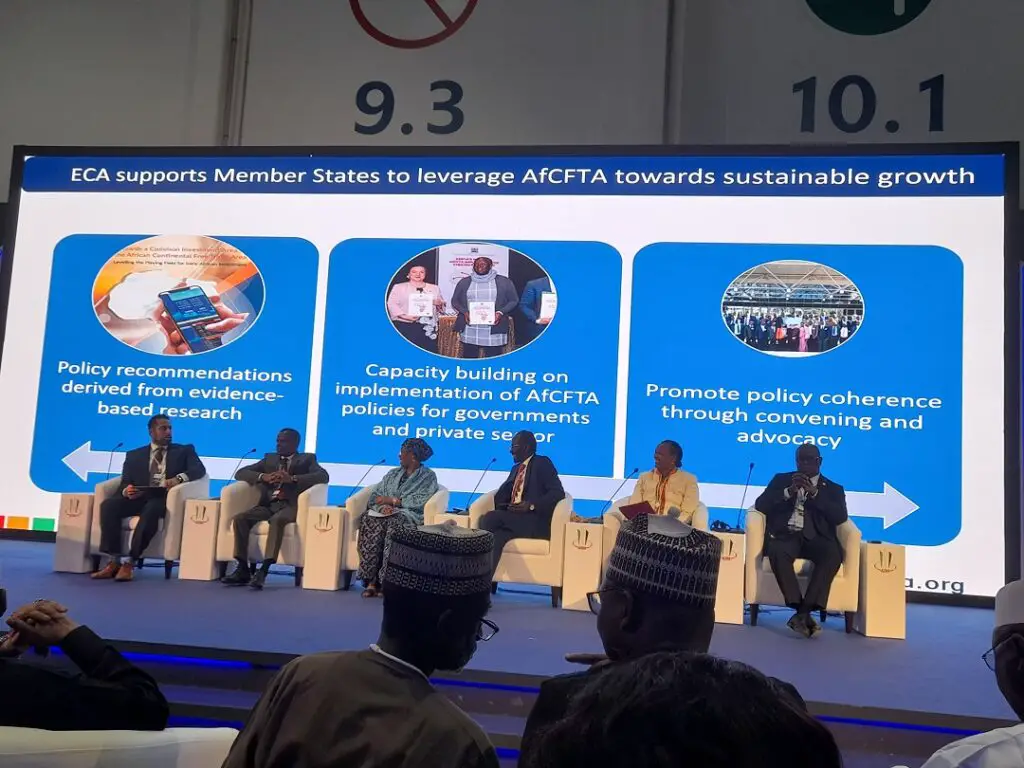- Key staff in Eswatini and Zimbabwe have gained critical skills on how to harness Africa Continental Free Trade Area (AfCFTA).
- The training will be rolled out in Kenya, Seychelles, Rwanda, and DRC starting June, this year. It is critical for helping businesses identify and compare emerging opportunities in Africa.
- The programme equips staff with integrated and reliable trade intelligence on international market performance and opportunities as well as market access conditions.
Staff from over 80 companies and public agencies in Eswatini and Zimbabwe have gained critical skills on how to harness opportunities under Africa Continental Free Trade Area (AfCFTA). The training was undertaken by the African Trade Observatory, one of the five operational instruments of AfCFTA charged with driving intra regional trade of small businesses.
The online dashboard is critical for helping businesses identify and compare emerging opportunities across the continent. It provides integrated and reliable trade intelligence on international market performance and opportunities as well as conditions for market access.
Eswatini, Zimbabwe ready for trade under AfCFTA
“This capacity building initiative is vital and timely as COMESA member states continue to position themselves for commercially meaningful trade under the AfCFTA,” COMESA Business Council’s CEO, Teddy Soobramanien said.
He added that the availability of quality data is critical for business success in the ever evolving regional and global economic landscape.
“Small and medium-sized enterprises contribute over 70 percent to the region’s economic growth. Therefore, galvanizing their transition into regional and global value chains is of fundamental importance to the regional integration agenda. This training will complement other COMESA initiatives such as the COMESA digital retail payments platform, and the regional customs single window,” he stated.
The COMESA Business Council (CBC) in collaboration with the International Trade Centre (ITC) and the COMESA Secretariat’s Regional Enterprise Competitiveness and Access to Markets Programme (RECAMP), funded by the 11th European Development Fund, partnered with Business Eswatini and the Zimbabwe National Chamber of Commerce to provide training to the business community on the African Trade Observatory.
To date, key players in Zambia, Malawi, Egypt, Ethiopia, the Kingdom of Eswatini, and Zimbabwe have gained critical skills. Additionally, Kenya, Seychelles, Rwanda and DRC will be trained starting June, this year.
Eritrea only African country yet to join AfCFTA
AfCFTA is a trading agreement by 54 African nations making it the largest free trade area globally. Eritrea is the only country yet to sign the pact. The arrangement was settled in March 2018 in Kigali under the auspices of the African Union Commission. Under AfCFTA, African countries are free to trade goods and services with each other making Africa a single market.
To operationalise AfCFTA, member states are working on reducing tariffs among each other to facilitate cross border trade. Other plans in the works are agreements on cross-continental trade and service standards.
The free trade deal will spread wealth more evenly across the continent. By increasing trade among themselves, African countries have a chance to boost their economies.
By creating an environment conducive for better trade, AfCFTA will provide even playground for economies to grow. And with thriving business, countries will have a better chance to become economic powerhouses.
In April, the umbrella bodies of the AfCFTA private sector called for the removal of visas. They also asked for the reduction of custom processes to ease movement of goods. The African Business Council (AfBC) decried inconsistent and inadequate freight and logistics at the borders. The council, which brings together regional economic communities, said custom hurdles keep hindering intra-African trade.
Many non-tariff barriers hampering trade
Speaking during the official opening of the AfCFTA Business Forum in April at the Cape Town International Convention Center, South Africa, the AU Commission Deputy Chairperson Monique Nsanzabaganwa disclosed that so far, 47 member states had ratified the agreement but decried the existence of many non-tariff barriers hampering trade, especially transport logistics.
“A number of instruments have been put before you to start trading under the AfCFTA, and these include the AfCFTA e-Tariff Book, the Rules of Origin Manual, the African Business Council, the Pan-African Payments and Settlement System (Papss), and the AfCFTA Dispute Settlement Mechanism, among others. All these instruments and tools will ensure that legitimate business transactions thrive,” Nsanzabaganwa said.
